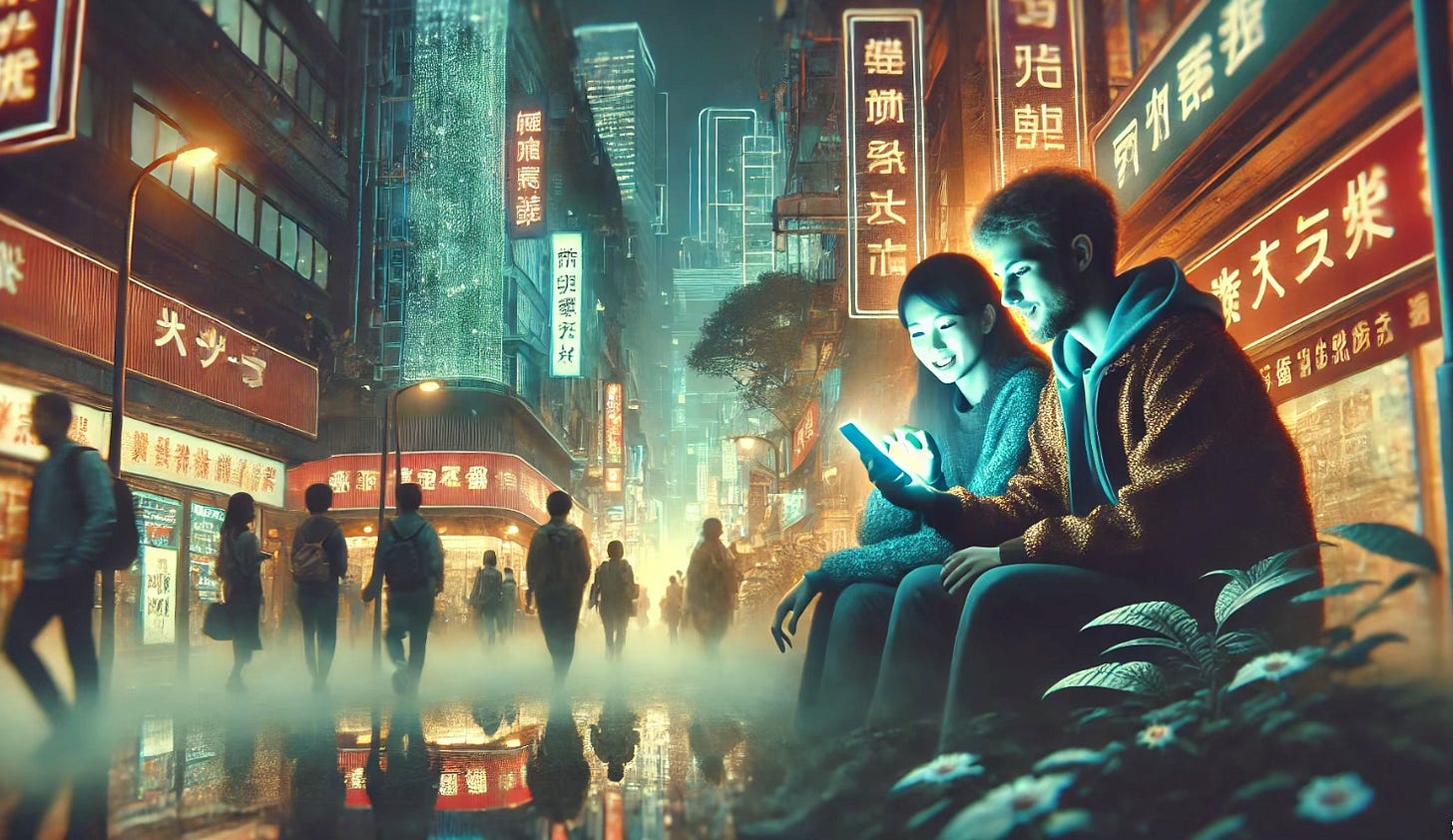The Meaning of Friendship in the New Millennium
Connections in Chaos: How Friendship Thrives in a Fast-Paced, Digital World
Friendship in the new millennium is a kaleidoscope of chaos and connection, an erratic dance choreographed by algorithms, emojis, and existential crises. Trust, empathy, and companionship are still the backbone of this human circus, but the ringmasters—technology, shifting cultures, and global chaos—have rebranded the whole act. So grab your phone, update your status, and let’s plunge headfirst into this brave new world of friendship, where every “like” is a lifeline and every Zoom call teeters between intimacy and insanity.
Digital Frenemies: Connection or Just Static?
Social media has made us masters of the superficial. Instagram, WhatsApp, TikTok—they’re the virtual lifeboats we cling to while drifting apart in the real world.
Sure, you can send a cat meme to your childhood friend in Peru, but when’s the last time you talked about anything deeper than their vacation photos?
This new closeness is a paradox. We’re “always on,” but more disconnected than ever. Research says loneliness is up, but who needs studies when you’ve felt it yourself—scrolling through feeds of perfectly curated happiness while forgetting the sound of your best friend’s laugh.
Welcome to a reality where your best friend could be halfway across the globe, and you’ll never meet him or her in person. A gamer in Tokyo and a streamer in São Paulo are closer now than neighbors in a small-town diner. Discord servers are the new coffee shops, where strategy and camaraderie bloom under neon avatars and late-night caffeine highs.
Take, for example, the virtual book club. It starts as a discussion of Dostoevsky but morphs into a cultural potluck: one member shares their grandma’s pierogi recipe; another explains Diwali. Suddenly, friendship transcends borders and turns into a human atlas, weaving empathy and shared stories across time zones.
Friends aren’t just friends anymore—they’re therapists, fitness coaches, business partners, and sometimes, the only people who remind you to drink water. Mental health awareness has cracked open the vault of vulnerability, reshaping friendship into something raw and unfiltered. It’s not just “How are you?” anymore; it’s “No, really, how are you?”
Picture a group of friends hosting a monthly “emotional potluck.” Everyone brings their highs, lows, and a side dish of existential dread. It’s messy, but it’s real—and it’s proof that friendship isn’t just fun and games anymore. It’s survival.
Fast Times and Intentional Friends
The modern world moves at breakneck speed, leaving friendships to fend for themselves. Career ambitions, relocations, and sheer exhaustion stretch relationships thin. But in this whirlwind, small rituals are the glue. A Sunday night phone call or an annual cabin trip becomes a sacred act, a defiant stand against the forces pulling us apart.
Think of two childhood friends who live on opposite sides of the globe. Every week, they carve out an hour to talk, even if one is sipping coffee while the other eats dinner. It’s not convenient, but it’s intentional, and that’s the magic word in modern friendships: effort.
Activism and hobbies are the new breeding grounds for friendships. Whether it’s a beach cleanup or a midnight yoga class, people are bonding over shared missions. There’s nothing like hauling trash out of a polluted river to create camaraderie—or maybe that’s just the smell of solidarity.
Take two strangers at an art workshop. They came for the watercolor techniques but stayed for the late-night debates on existentialism. Modern friendships are about finding your people in the most unexpected places, united by a purpose bigger than yourself.
Online communities are the unsung heroes of 21st-century friendships. Reddit threads, Discord channels, and Twitch streams are the watering holes of the digital savanna, where niche interests breed tribes of like-minded weirdos.
Imagine a die-hard fan of a cult TV show who stumbles onto a Reddit thread. Before they know it, they’re planning a meet-up with strangers who feel more like family than the neighbor they’ve known for years. Critics call these bonds shallow, but anyone who’s stayed up until 3 a.m. arguing about a plot twist knows better.
Fragility Meets Resilience: The Friendship Paradox
Friendships today are fragile, yes, but they’re also resilient in ways that would baffle our ancestors. The pandemic was the ultimate stress test. Some friendships dissolved under the weight of isolation, while others thrived on creativity—virtual movie nights, collaborative playlists, and the occasional drunk FaceTime.
This duality—fragility and resilience—is what defines friendships in the new millennium. It’s a reminder that even in the face of chaos, the bonds we choose to nurture can endure. But only if we’re willing to fight for them.
Despite all the chaos, friendship remains the one thing we can’t digitize, automate, or replace. It’s the lifeline that pulls us out of our darkest hours, the mirror that shows us who we are, and the force that reminds us we’re not alone
in this mad, spinning world.
So here’s the truth, raw and unfiltered: friendships are messy, imperfect, and worth every ounce of effort. Whether it’s a Zoom call, a hug after years apart, or a meme that says, “I see you, and I care,” friendship is the universal antidote to a fractured world. Treasure it, fight for it, and let it keep pulling you forward. After all, in this tangled web of modern life, it’s the friends we choose that keep us human.






I get this Bret, spot on. I always wanted to have a 'pen pal' when I was a kid. Was never able to experience that but now... an intensely positive aspect of the internet!
I watch your content every day, Bret. I'm delighted.